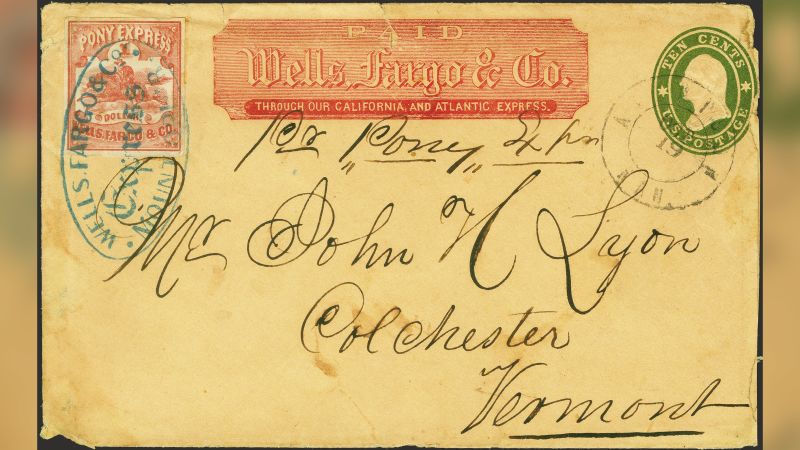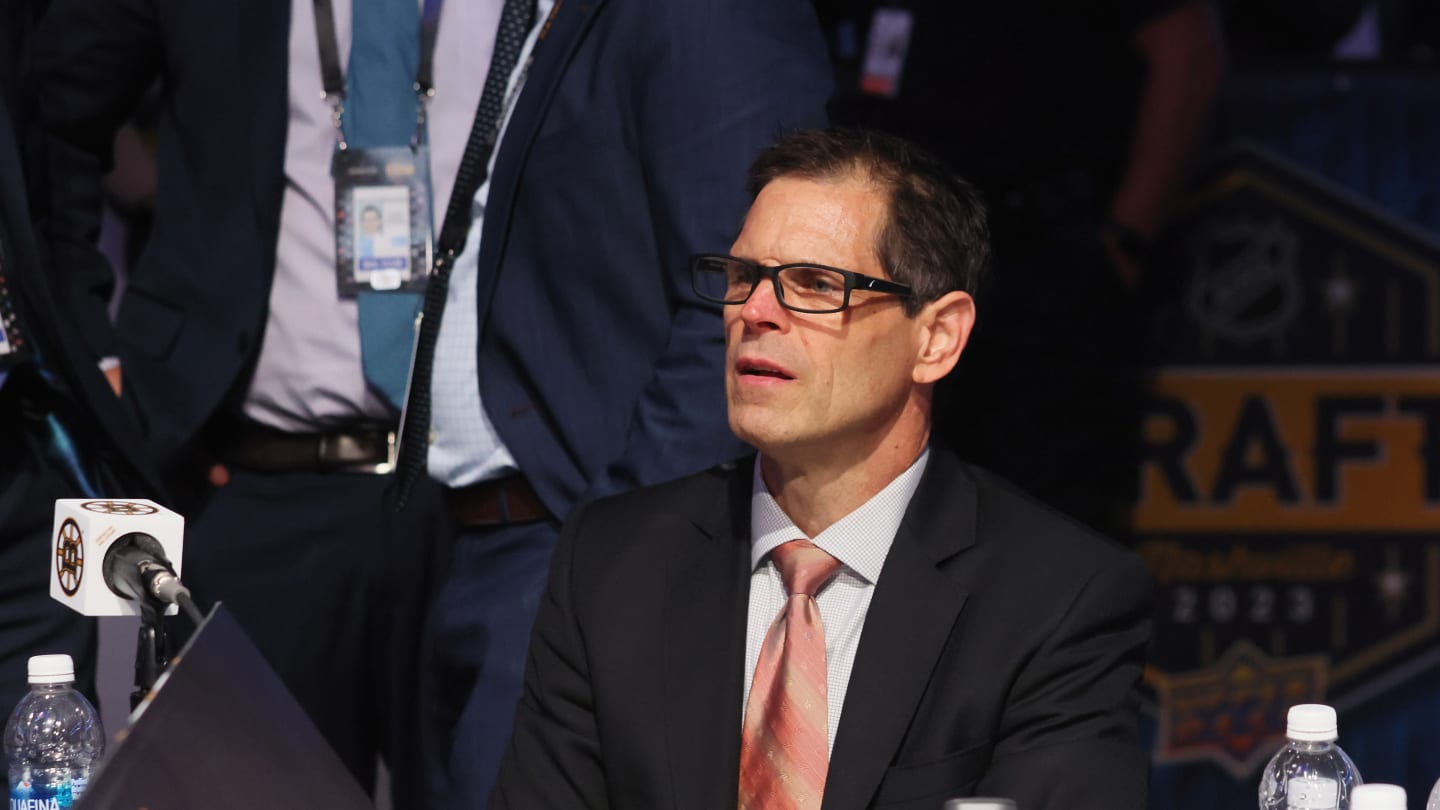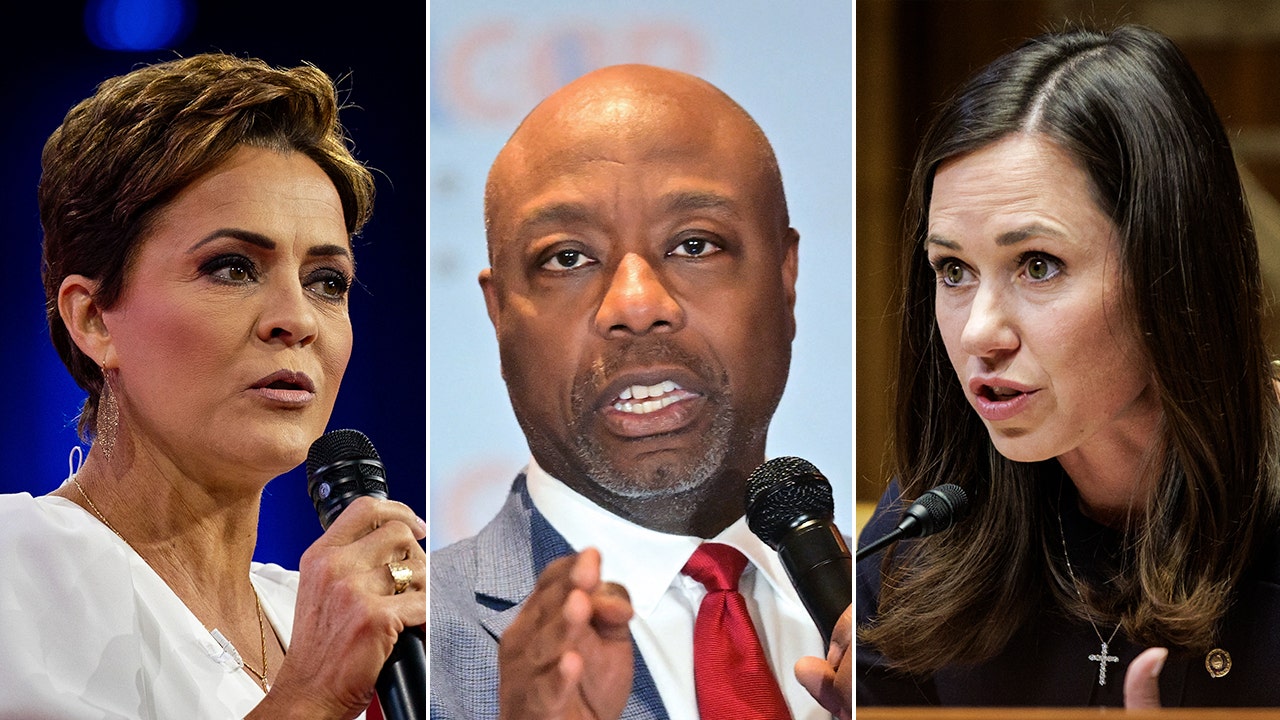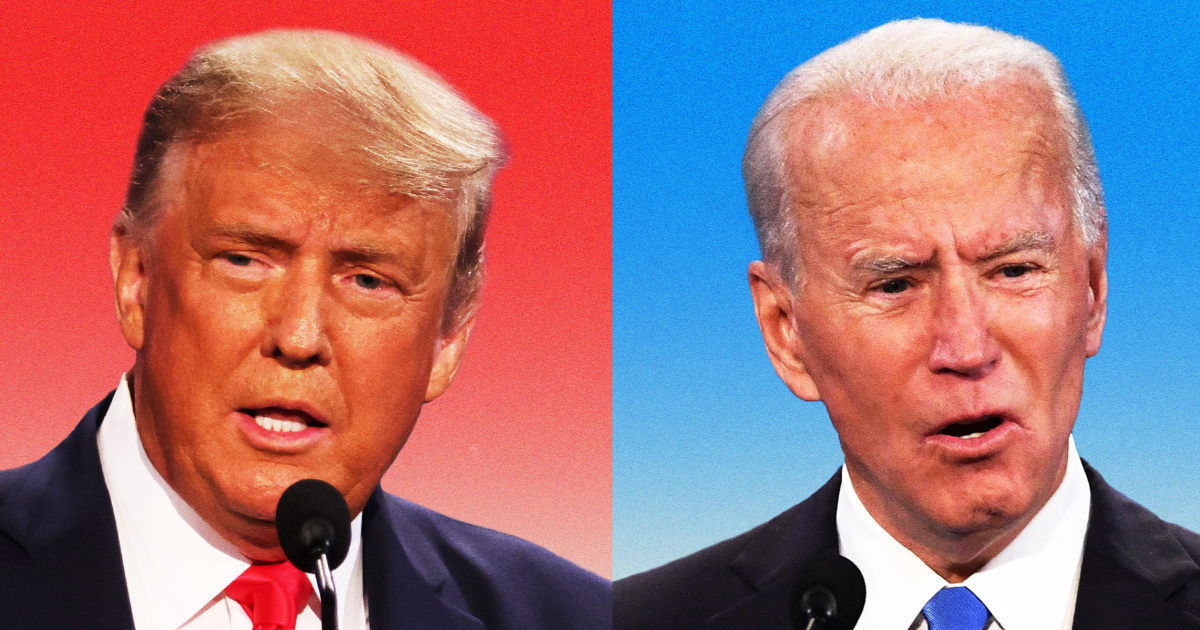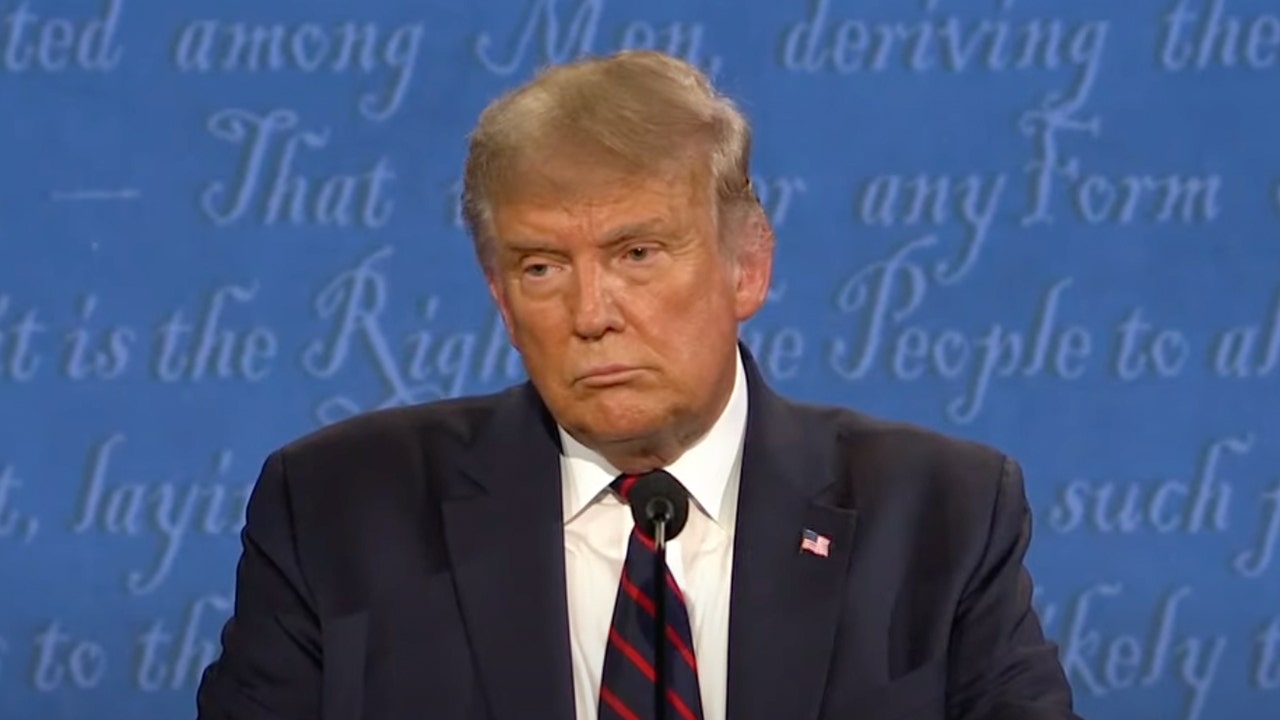CNN
—
A rare envelope from the 1860s, the only one ever sent to Vermont via the fabled Pony Express, is going up for auction this month.
Bids will start at $2,500, but it’s anyone’s guess how high the price might go.
Or who sent the letter, which is long gone.
The Pony Express was only in operation from April 3, 1860, to Oct. 26, 1861. It was “by far the most effective way to communicate cross-country,” operating horse and rider relay teams, according to the US Postal Service.
H.R. Harmer Fine Stamp Auctions, which is handling the sale of the Vermont piece, said only about 250 envelopes were carried by the Pony Express before it shuttered.
The Vermont envelope is postmarked October 5, 1861, and was sent to John H. Lyons in the town of Colchester, which is in northern Vermont bordering Lake Champlain, a news release from the auction house states.
“He was the son of a very prominent farmer in the area,” auction house CEO Charles Epting told affiliate WCAX of Lyons.
The station, citing the Colchester Historical Society, said Lyons “served in the 13th Vermont Regiment, Company D during the Civil War, incorporated a local butter and cheese factory, and later became postmaster.”
The unknown sender spent $1, equivalent to about $35 today, to send the letter, the station reported.
It’s one of the last letters carried by the Pony Express, Epting said.
“The most up-to-date census includes only around 250 envelopes carried via Pony Express,” Epting said in the news release. “Most of these were sent to major metropolitan cities, so the fact that this letter went to a small town in Vermont and the fact that it has survived for well over a century, is remarkable.”
The auction is scheduled to take place on June 21 in New York City. In recent years, one historic Pony Express envelope that was carried to Abraham Lincoln brought in $330,000, according to the auction house.

